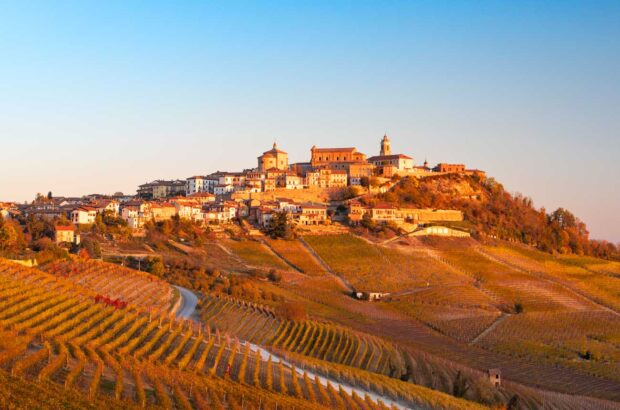As the World Cup kicks off in South Africa, OLLY SMITH meets the Cape winemakers who have risked leaving a winning team to set up a new venture under their own management. His tip to watch this summer? Swartland
This summer, as the eyes of the football world turn on South Africa, England’s World Cup hopes will be pinned to a large extent on team manager Fabio Capello. The Italian has been credited with turning an under-achieving team into genuine contenders.
Like many of his managerial counterparts, Capello is an ex-player – in his case a solid, rather than spectacular midfielder. He is not alone in finding his niche in management.
Visiting South Africa last year as the football frenzy gathered pace, I couldn’t help noticing a parallel in the wine world. More and more winemakers are quitting big-name wineries in favour of setting up and managing their own.
But are the results Premier League level? Certainly, some of the Cape’s most inventive wines are coming from these brave new ventures, and some areas are even rocketing in profile thanks to wineries working well as a team and promoting stronger regional identities.
Dynamic Swartland
An hour’s drive north of Cape Town is Swartland, rapidly developing into a hot spot for ex-winemakers setting up new teams. Among them are Adi Badenhorst, formerly of Rustenberg, and Eben Sadie, who previously led Charles Back’s Spice Route project. Part of the region’s success can be attributed to a consensus between wineries on matching varieties to terroir.
Rhône varieties rule, with Syrah and Mourvèdre and a host of white grapes such as Grenache Blanc, Roussanne, Marsanne, Viognier and Clairette. There are also impressive Chenin Blancs and sweet straw wines.
But Swartland is not just a story of matching grapes to soil. Its reputation is growing due to the adventurous, skilled mix of independent winemakers expressing not just a sense of place but also themselves – individually and as part of this dynamic emerging region. That, and a homespun unpretentiousness for fans of quality food and wine.
On a recent visit to the colourful, laid-back country town of Riebeek Kasteel, I witnessed the final licks of paint and new sign being hung outside the most recent addition to Swartland’s enviable canon of talented winemaker-managers. Mullineux Family Wines was started by Chris and Andrea Mullineux just 18 months ago. ‘We figured that if we didn’t do it now before we had kids, we’d have to wait another 20 years.
So just before we got married, we set up the company and resigned from our previous winemaking jobs [at Tulbagh Mountain Vineyards],’ says Andrea. A necessarily budget approach focused on the basics: quality vineyard sites and knowhow over gadgets and expensive machinery.
‘There are considerable overheads in winemaking and unlike some “flyingsolo” winemakers such as Adi Bandenhorst, who became famous during his time as Rustenberg’s winemaker, people were only starting to hear about us globally when we started up our own winery,’ says Andrea. ‘So we try to meet as many people personally so they get to know our story.’
Their motivation is impressive, especially given that Andrea grew up determined to become an astronaut (her grandfather worked on the heat shield for NASA’s lunar module) and Chris hoped to be a train driver. But more importantly, their wines are already garnering impressive reviews on the international stage.
Self-belief
The player-turned-manager model is by no means restricted to Swartland. Across South Africa, dynamic winemakers are branching out on their own: Jean Daneel (formerly at Morgenhof), Ross Gower (ex-Klein Constantia), Etienne Le Riche (ex-Rustenberg), Jan Boland Coetzee (ex-Kanonkop) and Beyers Truter (also ex-Kanonkop), to name just a few.
I’ve also encountered impressive work building South Africa’s profile beyond the Bordeaux blends that have dominated so many wines from established regions such as Stellenbosch. I salute this approach – some of the most memorable wines I have tasted have either been blends or wines from Syrah, Semillon, Chenin Blanc and Sauvignon Blanc.
Trizanne Barnard (ex-Anwilka) is one winemaker brave enough to take the risk and focus on the wines she wants to make, with her first release under her own name – a blend of 87% Sauvignon Blanc and 13% barrel-fermented Semillon from 2009 – made from fruit sourced from the emerging cool-climate region of Elim.
A Swartland Syrah will follow. ‘At the end of 2008 I took the leap and started Trizanne Signature Wines.’ His biggest challenges? ‘To stay focused and calm after 16 months of investment with no return to date, to survive the recession without a financial partner, and to keep on believing in myself and my wine.’
Self-belief is vital, along with a sense of purpose. These are both qualities that winemaker Niels Verburg (ex-Beaumont) has in abundance. Verburg set up Luddite Wines in Houw Hoek Mountains, just outside Bot River, back in 1999, and with a growing cult following around the world, his sole aim of ‘making world-class Shiraz’ is gathering pace.
‘I enjoy not having a safety net and the realisation that you only have about 40 chances to get it right in your winemaking lifetime. I admire any winemaker who is making terroirspecific wines and the guys that make wines that are off the wall. In times where
commercial wines are easier to sell, it’s great to see that some winemakers still stick to their guns and make the wines that they want to make.’
Chance for glory
It seems to be this freedom to take risks that spurs winemakers to quit their jobs and gamble everything on a solo venture. Bruwer Raats was hungry for a shot at goal. ‘I arrived in Stellenbosch in 1993; everything I owned I carried on my back. I had a dream to make wine for myself and tell a different story about African terroir.’
By setting up a wine consulting business and buying and selling property in Stellenbosch, he raised enough capital to start Raats Family Wines. One of Raats’s great strengths is his focus on Chenin and Cabernet Franc, which gives his winery a powerful identity. Bruwer’s huge risk is paying off – his work with Chenin Blanc is outstanding and, for me, he makes the Cape’s finest Cab Franc.
But to succeed in a solo venture takes more than money. Philip Costandius of , Solo Wines is clear that finance aside, ‘the greatest challenge in South Africa is physiological ripeness in the grapes. The weather, especially heatwaves, can play havoc, and often we have high-sugar grapes which are not necessarily ripe.’
When all the ingredients come together, though, Costandius argues that the result is the successful marriage of ‘the succulent, fruit characters of the New World with the Old World’s understated elegance’. Moving from a team player to a managing a solo venture also presents the challenge of recruiting the necessary support.
When Louis Nel set up Louis Wines, he was working nights and weekends on top of his day job and still found all his funds eaten up paying suppliers. But it’s Nel’s passion for thefuture that gives the strongest insight as to what burns in the heart of every player turned manager – the chance for glory.
‘During the apartheid years, we were very isolated from the rest of the world, making wine only for the local palate. When we were suddenly exposed to the international arena, we knew we had to change. There is nothing traditional any more about our winemaking; we are not shackled by convention. Change is the constant, and innovation is paramount.
We have the freedom to innovate, with no preconceived notions. We have no superiority complex, and want to achieve the best in everything we do.’ As the World Cup approaches, all the talk in the Cape is of the need for a star player to take South African football to
the next level. But when it comes to wine, the new generation of winemaker managers
have all the attributes needed to play in the big league.
Written by Olly Smith






